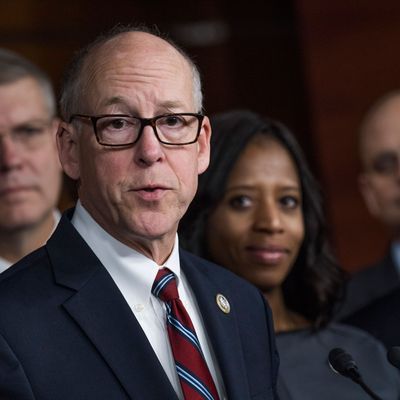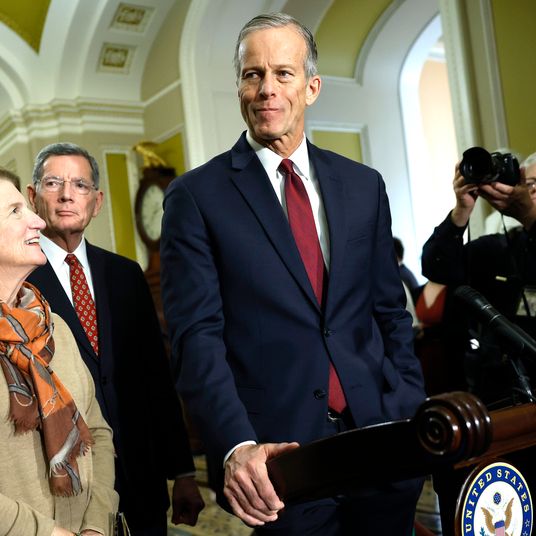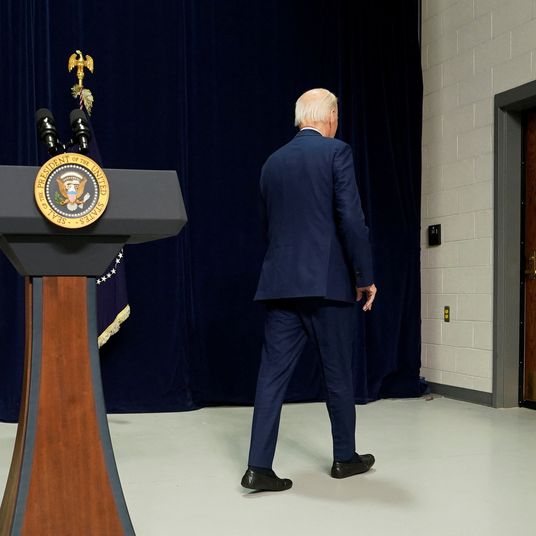
Though members of Congress spent last week at home in their districts, over the weekend White House sources suggested that Republicans were making progress on health-care reform. Per the Washington Examiner:
President Trump signaled this week that an elusive deal on healthcare legislation may also be in the offing. After trying and failing to build consensus around an Obamacare reform bill late last month, the administration and House leadership had sworn off healthcare for the foreseeable future, only to return to the negotiating table the following week.
Behind the scenes, several sources said House Republicans and White House officials have continued working toward a healthcare plan during the first week of recess.
That sounded promising, but nobody had any real details.
When House Freedom Caucus chairman Mark Meadows confidently told reporters last week that Republicans were “growing closer to a consensus” on a bill to repeal and replace Obamacare, many eyebrows were raised. What, specifically, had produced a breakthrough in the deadlock between Freedom Caucus members, who want to gut the core requirements of the Affordable Care Act, and Republican moderates, who want none of that?
Meadows explained that both sides want to “make sure that preexisting conditions are taken care of.” Once again, that sidestepped a key question. Identifying how exactly to “take care” of people with preexisting conditions has long been a central bone of contention — not just among Republicans, but between Republicans and Democrats.
So Wednesday’s update from the Examiner seems a little more credible:
A united Republican bill to repeal and replace Obamacare appears more and more out of reach after an Easter recess full of rowdy town halls, which have emboldened centrist Republicans to oppose an aggressive repeal of Obamacare being pushed by conservative Republicans and the White House.
And guess what the sticking point is? You got it: How to deal with people who have preexisting health conditions.
Conservatives say that high-risk pools can act as a safety net for those patients. However, centrists worry that the conservative plan would erode the Obamacare benefit, leaving them to face soaring costs.
Two GOP centrists, Reps. Greg Walden of Oregon and Leonard Lance of New Jersey, made it clear to people in their respective town hall meetings that they oppose any effort to remove the current protections for people with pre-existing conditions such as diabetes and cancer.
Keep in mind that what Walden and Lance are objecting to is giving states the option to herd sick people into their own little health-care ghetto where they would be at the mercy of state funding decisions. Conservatives are not insisting on mandatory national protections for people with preexisting conditions. So it does indeed appear they are further apart than ever.
This is not, it must be emphasized, some technical difference of opinion over some exotic issue like, say, the cost-sharing-reduction subsidies that the Trump administration is trying to use to coerce Democrats into cooperating with the repeal of Obamacare. Spreading the risk between people in good and bad health is fundamental not just to health-care reform but to the very concept of health insurance, public or private. Figuring out how to do that before embarking on the repeal and replacement of Obamacare would have been a very good idea, and there’s no longer much reason to think Republicans can figure it out now.
Ah, but still, the whispers of imminent victory continue:
I wouldn’t buy it.






























